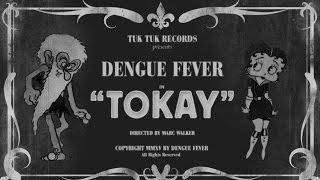
Mastering Emotions in Trading: Avoiding Risky Moves
Mastering Emotions in Trading: Avoiding Risky Moves
Emotions often drive investment decisions. Trading lore is replete with examples of how fear and greed influence the masses to buy and sell at the wrong time. Similarly, behavioral economists have focused on how avoidance of regret powerfully compels many traders to make poor investment decisions. To avoid painful feelings of regret, for example, traders hold on to losing positions, hoping they will turn around, or they sell off a position prematurely to lock in quick gains.
The interplay between emotions and risk-taking keeps many traders second-guessing their decisions. When we think our next trade will be a winner, we can’t wait to execute it, but when we are uncertain, we put off making a decision, and more often than not, miss a significant market move. The challenge of trading is to accurately perceive risk, control our emotions, and execute a trade calmly and rationally. Overconfident traders, however, may have an inability to accurately gauge their emotions
If you are making too many risky trades and are paying a price for it, you might try focusing on how it feels to lose. Perhaps you are not thinking of potential negative consequences of loss. If you focus on how badly you’ll feel after a loss, however, you’ll stop and think through your trading decisions. And you’ll be more likely to manage risk and wait for high probability setups before impulsively making a bad trade. There are times when our emotions interfere with our ability to execute trades calmly and rationally, but if you are prone to seek out risk, you might want to focus on the potential consequences of loss. It will stop you from making trades that may decimate your account balance.
Emotions often drive investment decisions. Trading lore is replete with examples of how fear and greed influence the masses to buy and sell at the wrong time. Similarly, behavioral economists have focused on how avoidance of regret powerfully compels many traders to make poor investment decisions. To avoid painful feelings of regret, for example, traders hold on to losing positions, hoping they will turn around, or they sell off a position prematurely to lock in quick gains.
The interplay between emotions and risk-taking keeps many traders second-guessing their decisions. When we think our next trade will be a winner, we can’t wait to execute it, but when we are uncertain, we put off making a decision, and more often than not, miss a significant market move. The challenge of trading is to accurately perceive risk, control our emotions, and execute a trade calmly and rationally. Overconfident traders, however, may have an inability to accurately gauge their emotions
If you are making too many risky trades and are paying a price for it, you might try focusing on how it feels to lose. Perhaps you are not thinking of potential negative consequences of loss. If you focus on how badly you’ll feel after a loss, however, you’ll stop and think through your trading decisions. And you’ll be more likely to manage risk and wait for high probability setups before impulsively making a bad trade. There are times when our emotions interfere with our ability to execute trades calmly and rationally, but if you are prone to seek out risk, you might want to focus on the potential consequences of loss. It will stop you from making trades that may decimate your account balance.
Комментарии:
Mastering Emotions in Trading: Avoiding Risky Moves
VitaminM Pill
CARA YANG BENAR MENGOLAH JANTUNG PISANG, AGAR JADI MENU BOROS NASI..!!
Rayyan Al Ghazali
The Most Powerful Popular Commanders Right Now | Power Tier List | EDH | Commander | MTG
The Commander's Quarters
Dower Rights Explained - Alberta Real Estate Education
Real Estate Agent Training
DENGUE FEVER - Sni Bong
DENGUE FEVER
Tokay (Official Music Video) - DENGUE FEVER
DENGUE FEVER


























